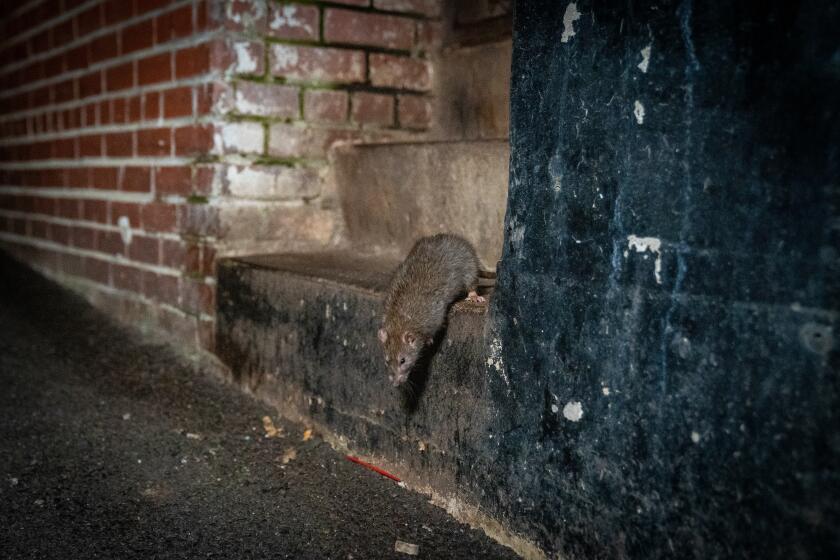Off beat Therapies Go to Washington : Flap develops over effort to validate alternative techniques
- Share via
Established medicine has long been slow to recognize the potential value of unconventional therapies. When acupuncturists from Asia first introduced that technique in this country, they were shunned and reviled by most doctors. Today acupuncture is widely accepted as a means of treating pain and other symptoms.
But the current uproar in Washington over how to validate so-called alternative medical therapies gives us concern. Leaders of the National Institutes of Health are under intense pressure from Congress to study bee pollen, shark cartilage, special diets and other unproved remedies for a variety of diseases and conditions.
With an angry blast at what he called improper pressure from Congress to bypass the rigors of science to validate alternative remedies, Dr. Joseph Jacobs resigned Sept. 30 as director of the NIH’s Office of Alternative Medicine. That office was formed two years ago largely at the behest of a powerful Democrat, Sen. Tom Harkin of Iowa, who claims to have cured his allergies by taking capsules of bee pollen recommended by a friend who is a businessman.
PRAYER AND DIETS: The potential value of alternative remedies has been underscored by the scourge of AIDS and certain cancers, which have shown the limitations of conventional medicine. Even if the afflicted find only better quality of life rather than a cure, it is worth studying whether meditation, yoga, massage, hypnosis, imagery, macrobiotic diets and prayer can be useful adjuncts to traditional treatments. There are some good studies suggesting that such techniques, although offering no cures, can extend life.
However, there are dangers. Alternative medicine has provided fertile ground for all manner of snake-oil salesmen and other scam artists who prey on the desperate and gullible. At best, the patients lose their money; at worst their lives. There is a crying need for an agency like the NIH to separate the wheat from the chaff.
Harkin, chairman of the appropriations subcommittee that controls the NIH budget, asserts that Americans spend $13 billion a year on various unconventional therapies and that the federal government has done little to try to determine which are valid. He complains that the NIH office under Jacobs was poorly managed and the agency was slow to change.
The issue seems to boil down to how to validate the alternative therapies. Jacobs wanted to create several university-based centers where the therapies could be tested by people who have no emotional or financial stakes in the outcome. Harkin’s backers preferred “site investigations” whereby the NIH would help alternative practitioners devise proper clinical trials of their techniques so they could qualify for approval by the Food and Drug Administration.
BEES AND SHARKS: The NIH’s alternative medicine office plans to support site investigations of a number of alternative therapies, including the use of bee pollen to treat asthma, a urine extract called antineoplastons to combat brain tumors and shark cartilage to treat cancer.
Harkin says he favors a combination of the center and site approaches and disputes suggestions that he is hostile to scientific method, which relies on controlled replicable experiments. But the problem is that many of the practitioners of alternative medicine are skeptical of scientific method and are not good candidates to enlist to study and evaluate their own work.
Even though the Office of Alternative Medicine accounts for only a tiny fraction of the NIH budget, the issue has presented the NIH director, Harold Varmus, with a particularly sticky issue as the search goes on for a new alternative medicine director. The NIH should realize it has given inadequate attention to offbeat and perhaps even weird regimens. But both the agency and Harkin will be embarrassed if it lets down the guard against medical charlatans.






